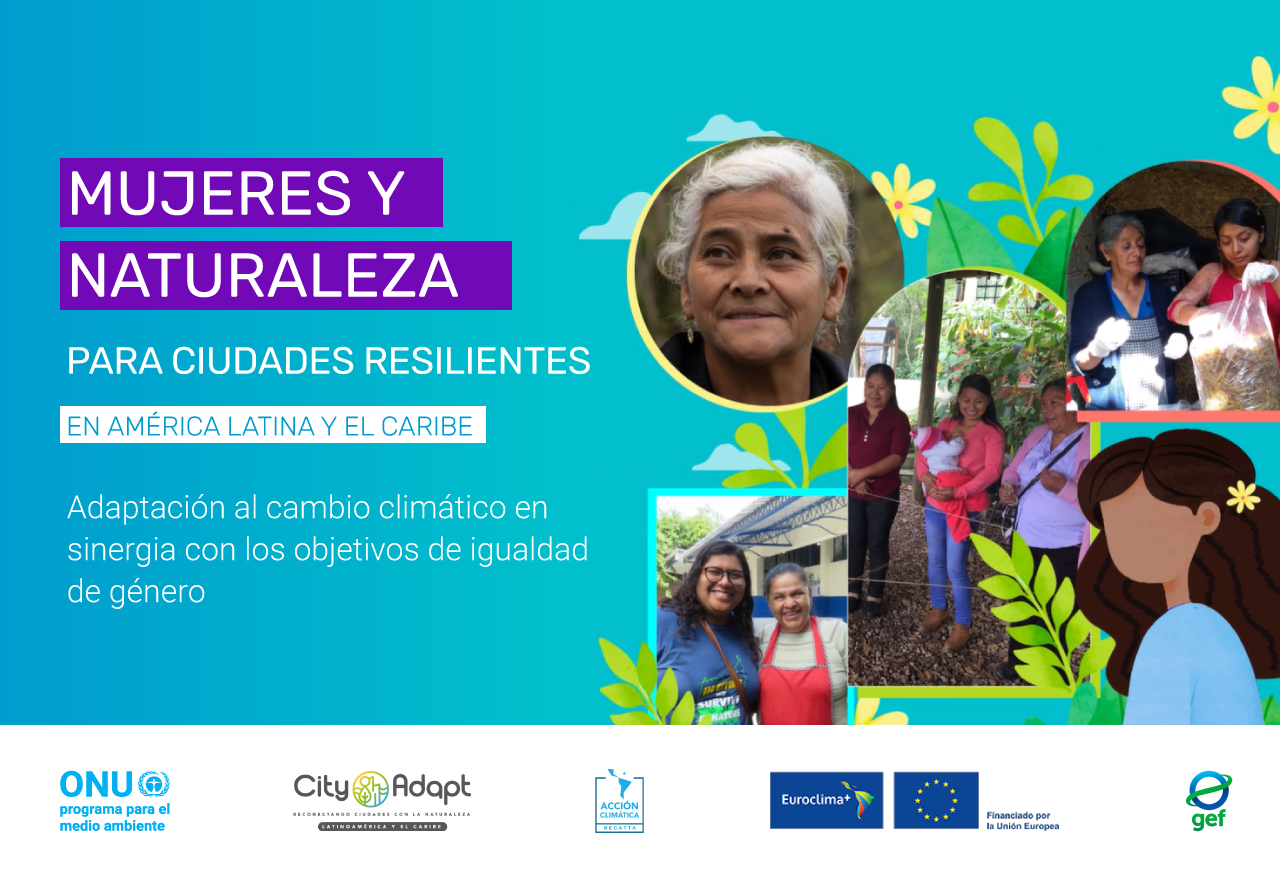Women and nature
for resilient cities
In Latin America and the Caribbean
Adaptation to climate change in synergy with gender equality objectives.
Equidad de Género
Despite women and children being 14 times more likely than men to die during a climate disaster, there is a persistent gender gap in climate action.
Cities in Latin America and the Caribbean, with the support of the United Nations Environment Programme (UNEP), are advancing climate change adaption action in synergy with gender equality goals.
In the Latin American and Caribbean region, 81 per cent of the population lives in urban areas. Moreover, the region has reported a total of 175 disasters during the 2020-2022 period, of which 88 per cent had a hydro-climatological origin, accounting for 40 per cent of disaster-related deaths and 71 per cent of economic losses.
The impacts of climate change are not of equal scope for everyone
Women carry a high and uneven burden due to structural gender gaps. The lack of access to information, resources and training, as well as their differentiated roles in society and household, often results in this group having less capacity to adapt. However, women and girls have unique knowledge and skills to be agents of change in leading the way towards climate-resilient development
“I live in an area that is at high risk of landslides, that is why I was interested in learning how to adapt”
Says Esther Hernández, beneficiary of the CityAdapt project in Xalapa (Mexico), who identifies herself as a guardian of reforestation.
The CityAdapt project funded by the Global Environment Facility (GEF) and implemented by UNEP, aims to contribute to the adaptation to climate change of Latin American and Caribbean cities by building the capacities for Nature based Solutions (NbS) implementation in Xalapa (Mexico), San Salvador (El Salvador) and Kingston (Jamaica). NbS encompass actions to protect, conserve, restore, and sustainably manage ecosystems. These strategies are increasingly in the spotlight as one of the most effective ways to adapt to climate change.
NbS for adaptation do not automatically have positive outcomes for gender equality. However, they have a great potential to address this issue. In fact, not wearing the gender lenses when promoting NbS poses a big risk of maladaptation. Taking this into account, two gender action plans focused on NbS were formulated for San Salvador and Xalapa, with the collaboration of UN Women.
What is the starting point for gender-responsive NbS?
Women and men perceive and experience climate change differently, partly because of their distinct socially constructed gender roles, which result in differentiated impacts. The first step taken by CityAdapt to promote gender-responsive NbS was to build gender-sensitive vulnerability analyses with the aim of identifying how the population might be exposed to the impacts of climate change and how they experience more sensitiveness or hold differentiated adaptive capacities.
In San Salvador, focal groups were established in one urban community to explore the perception of climate change impacts. The findings showed how women, in comparison to men, were more likely to identify ecosystem services such as water regulation, food provision and erosion protection, as well as the impacts of climate change on the communities’ health and livelihoods.
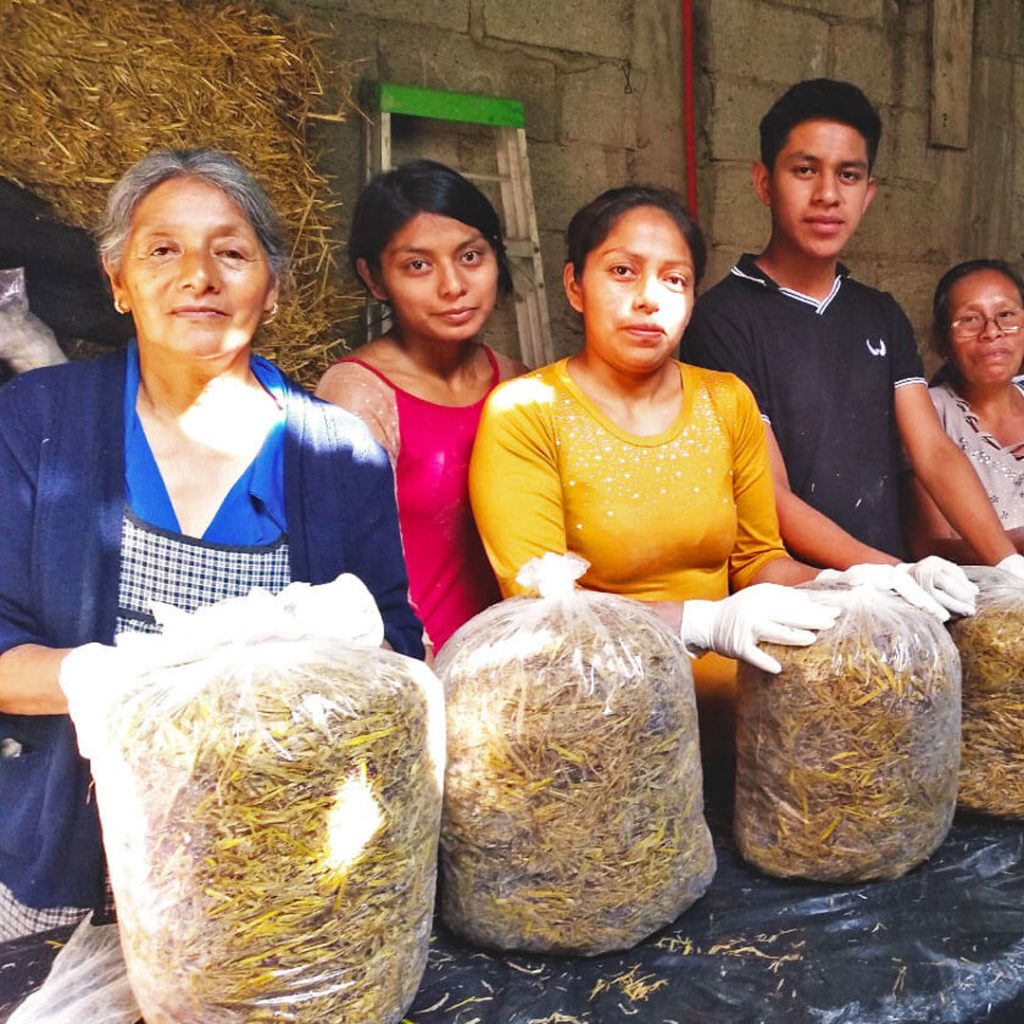
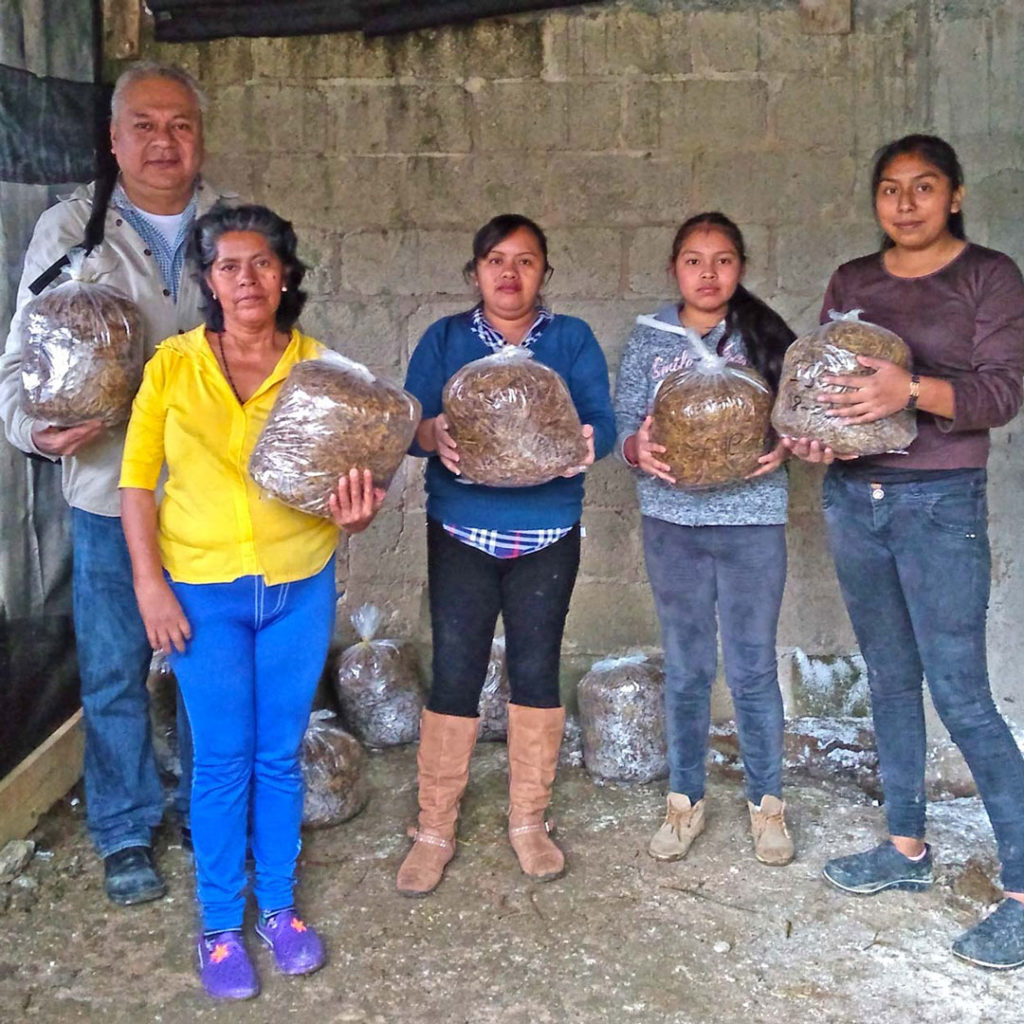
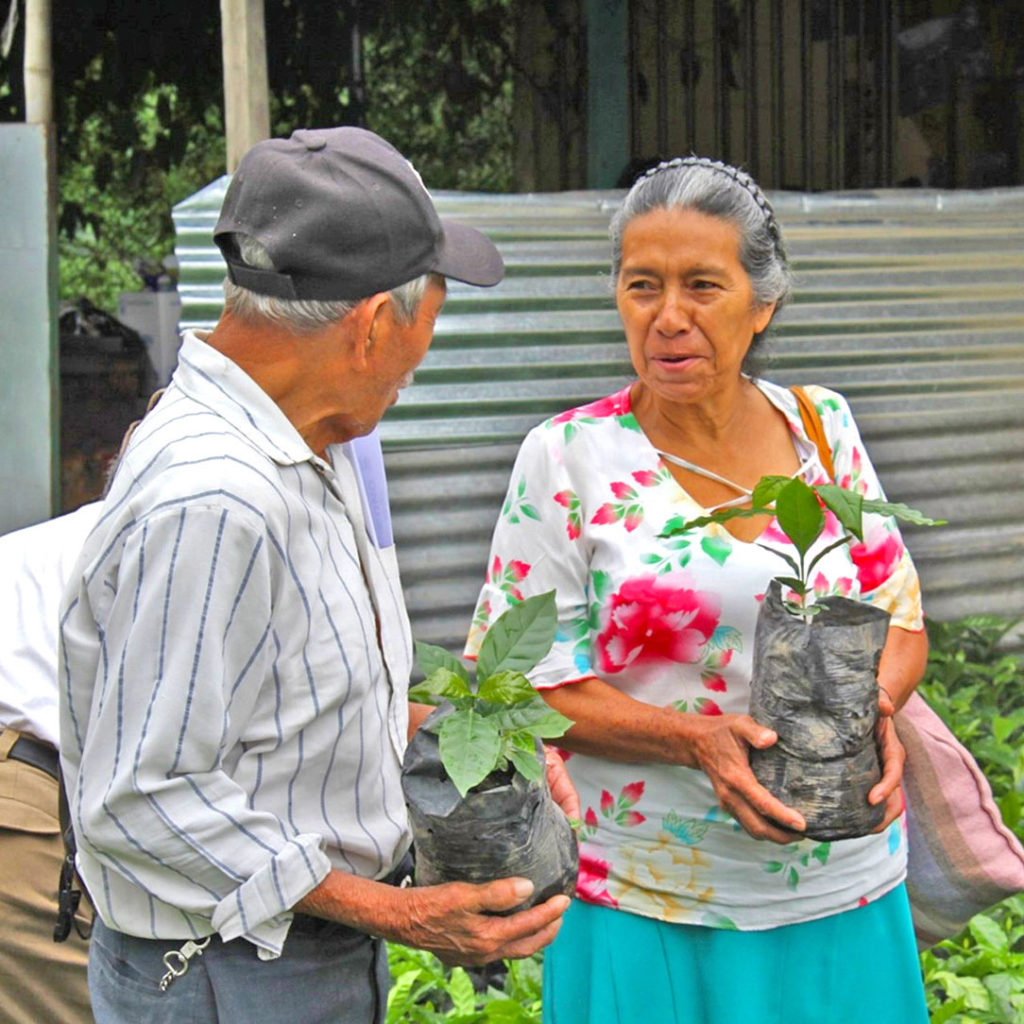
In the case of Xalapa, five gender-sensitive variables were included in the vulnerability assessment including, women-headed households and female economic participation rates, which helped consider how this population could be more sensitive or exposed to climate risks.
Despite the limited availability of updated information in both cities, these gender-informed vulnerability analyses allowed the selection of intervention areas and the design of NbS measures that would equitably benefit women and men.

Engagement of underrepresented voices:
women as harnessers of nature
Women building “sponge cities“
In San Salvador, the increase in frequency and intensity of extreme rainfall events has eroded soils in the upper part of the Arenal-Monserrat micro basin, affecting rural communities who depend on coffee crops, while generating floods in urban areas downstream.
When the CityAdapt project was determining, alongside the communities, the NbS that would help them adapt, the team noticed that women were hesitant about participating. ‘Us women were afraid of raising our voices, because we thought we could not talk, we did not express ourselves well when talking in public’, says Lidia Martínez, coffee farmer and leader of an agriculture cooperative of 150 people. ‘I told them we are not less than anyone else, we can do it’, she added.
UNEP and its partners have put in place the necessary mechanisms to achieve gender-balanced and effective participation of women in all activities, despite gender inequality barriers, such as limited access to land ownership and limited literacy levels among women.
Currently, over 47,6km of infiltration ditches and 30 wells have been created to contribute to recharge groundwater supplies. Additionally, 1.161 hectares have been restored, and agroforestry technics have been used to prevent erosion and floods. Apart from benefiting from improved productivity in their livelihoods, the training sessions have enabled women to develop skills to raise their voices in social spaces, particularly about the governance of natural resources.
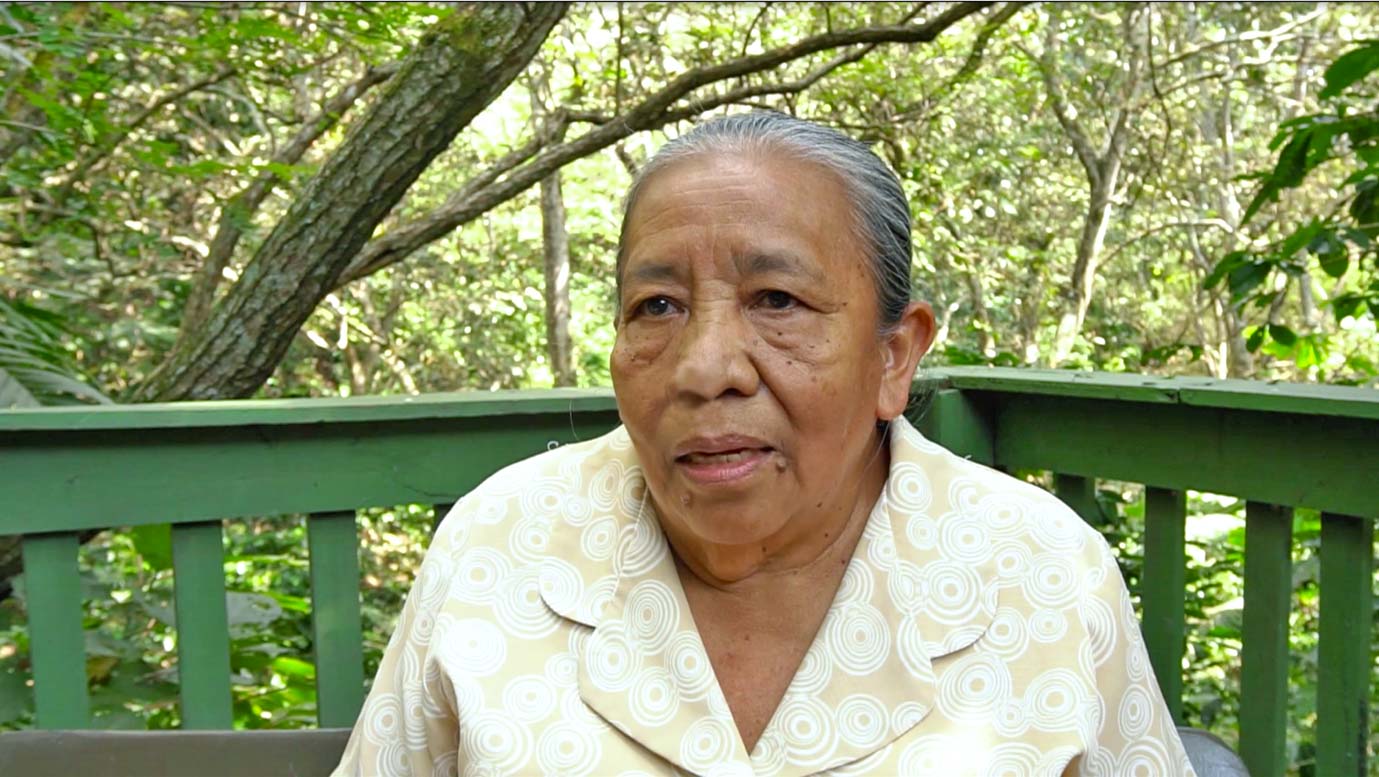
Economic empowerment and diversified incomes for women
Cacao production and commercialisation: targeted NbS for women
Adaptation to climate change fosters new opportunities to diversify the livelihoods of vulnerable communities according to changes in bioclimatic conditions. Although an elevation of 1.100 masl used to be considered too cold for crops such as cacao, 14 women, with the support of UNEP, are now witnessing how cacao trees are thriving in diversified and sustainably managed farms.
Women have been trained in the production, processing, and marketing of fine aroma cacao to allow them not only to increase their resilience to climate change, but also to promote the quality of high-altitude coffee. Developing an association with native cacao contributes to reducing the risk of on-site landslides and downstream flooding, and to improving the economic autonomy of these women by providing them with alternative livelihoods.
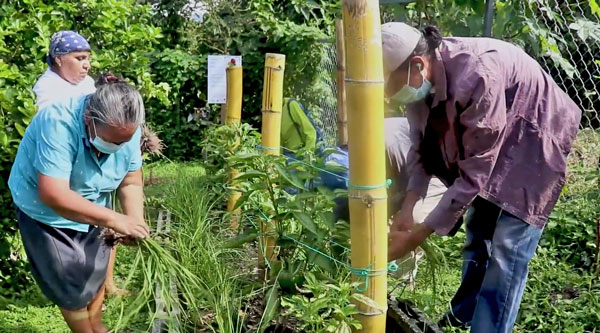
Lidia Martínez, in the rural area of San Salvador, remembers when she was a teenager and people used to wear warmer clothes for the harvesting season. Now, she perceives a warmer climate than in her younger years.
Building resilient water security
Rainwater harvesting
Climate change and unplanned urban expansion of cities often have a negative impact on the quantity and quality of water for domestic use. In the urban peripheries of the city of Xalapa, women often are the primary users of water services, given that the social distribution of unpaid domestic work make them spend more time on household chores and care responsibilities. However, poor drinking water infrastructures force them to walk long distances and spend around 35 per cent of their income to provide their families with safe water. This limits their time and money available for other activities, including education, employment, and healthcare.
In response, CityAdapt designed and installed 10 rainwater capture systems in schools and other public buildings that are not connected to the public water infrastructure. After evidencing the benefits of this NbS, the local government and the Foundation Rio Arronte, with the support of the local organization Sendas A.C., have invested in more than 100 additional systems for households. Today, 40 more are being installed in Banderilla, a municipality close to Xalapa.
Apart from reducing the vulnerability of women and their families to climate change by improving water security, the implementation of this NbS has challenged the traditional inequitable distribution of gender roles, promoting awareness in men on time-consuming and financially demanding activities like daily water fetching, as well as engaging them in the installation and maintenance of the water capture systems.
How to move from gender-responsive to gender-transformative NbS
CityAdapt works on the ground to integrate gender considerations in the implementation of NbS. However, this is only a part of a broader adaptation strategy that promotes long-term policies and investments to address structural gender inequality, supporting an enabling environment for marginalised groups to effectively adapt to climate change.
This strategy includes the generation of knowledge and training products to ensure that men and women can have equitable opportunities to adapt. Additionally, the establishment of monitoring and report frameworks that include the generation of sex-disaggregated data of the costs and benefits of NbS will contribute to scaling up gender-responsive strategies.
‘We are also collecting evidence on how climate adaptation action can improve women’s empowerment and, at the same time, women’s substantive engagement increases the effectiveness of adaptation action’, says Marta Moneo, Programme Officer of climate change adaptation in the UNEP Latin America and the Caribbean Office.
UNEP considers gender equality and a rights-based approach essential to end all forms of discrimination. UNEP is continuously strengthening its institutional capacity for a gender-responsive programme delivery.
More stories of women harnessing nature to adapt
Women Guardians of reforestation
After years of deforestation and contamination, the riparian forest of the Arroyo Papas stream in Xalapa, Mexico, had reduced its capacity to protect communities from landslides and floods triggered by changes in the precipitation patterns. Taking a watershed approach to building cities’ resilience, women and men from neighbouring communities are restoring the riparian ecosystem.
The women-led efforts for restoring the ecosystem are dismantling gender stereotypes and empowering women to contribute to decision-making processes in their communities. ‘At first I said no, this is not for me, this is for men, but when I attended some of the workshops, it changed my life and now I see things differently’, says Michelle Delgado, participant of the City Adapt project in Xalapa and Guardian of reforestation.
Mushrooms production and commercialisation:
targeted-NbS for women
In the peri-urban area of Xalapa, climate change is affecting maize crop yields. The decrease in the rentability of the crops pushes communities to deploy agricultural practices that increase pressure on the surrounding forest and, therefore, challenge its capacity to regulate water flows and contribute to the resilience of the city.
Given that most of the population depending on this economic activity were women, a targeted-NbS program was created to diversify the livelihoods promoting the production, self-consumption, transformation and commercialisation of mushrooms by 10 women-led organisations.
‘I produce mushrooms in my home the traditional way, by hand. With the 800 pesos (USD 40) per week that I obtain, I contribute to the family’s economy and provide a healthy diet at home’, says Paula Ramírez, participant of the initiative.
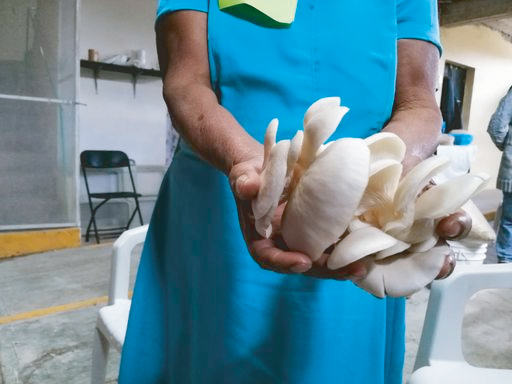
Community orchards in San Salvador
Extreme climate events reduce food availability and quality, and impact food prices, especially affecting vulnerable groups, which include low-income urban consumers and rural households who are net food buyers. Women are often more vulnerable to food insecurity and malnutrition from climate change impacts, as poverty, discrimination and marginalisation are exacerbating factors in their lives.
Women’s knowledge of water and agriculture is particularly important in relation to ensuring food security when climate events occur. Through a NbS focused on resilient community orchards, farmer women in El Salvador are growing food for their families in resilient systems that include diversified species, rainwater collection and drip irrigation systems, being able to save around USD 400 in food expenses in a 5-month period. The CityAdapt project makes sure that women’s knowledge is valued, simultaneously shifting narratives about their role in the community and their opportunities for leadership.

Learn more about the work of UNEP on Gender and Environment in Latin America and the Caribbean
